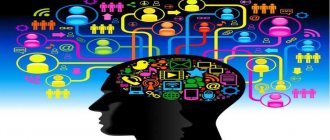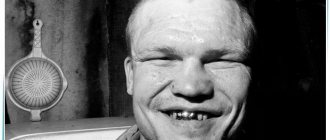Need motivation to study psychology? If so, read this article to learn about the many benefits of studying psychology that can be applied to your everyday life.
Human behavior is complex, and it can be interesting and useful to learn about the reasons that motivate certain behavior. Studying psychology will give you a better understanding of people and you will be able to see that you can use this knowledge in everyday life situations. Additionally, the field of psychology offers numerous opportunities.
Psychology provides insight into the complex workings of the human mind. If that's not enough, let's take a look at some of the benefits of studying psychology.
Understand yourself better
Let's be honest, who isn't interested in understanding themselves better? We all, at one time or another, take personality tests in a magazine or on a website to understand the workings of our consciousness and psyche. There is no better way to understand yourself than through knowledge of psychology. Questions like “Why do you feel this way when you do...?”, “Why do you behave this way?” and “How did you become the person you are today?” can all be understood through an understanding of psychology. Isn't this amazing? Once you understand your behavior, you can work on it accordingly. Additionally, it can help you deal with negative emotions effectively.
Psychology helps us understand ourselves better
As we delve into other theories, different approaches to personality, human development, or how culture influences our behavior, we are forced to look at our lives and the lives of others.
Studying psychology will force us to ask ourselves many questions. Questions that don't always have an answer. It will be an adventure where we get to know ourselves and other people a little more, where we can leave behind certain views and ideas that used to be so important to us.
Why is pseudopsychology dangerous?
Such practices are capable of Fake science: The impact of pseudo‑psychological demonstrations on people's beliefs in psychological principles. Plos One to have a significant influence on people, to form and strengthen pseudoscientific beliefs and even false ones. Fasce A. Divan Couches and Gurus: The Origin and Dangers Of Clinical Pseudopsychology. Method of memories.
Charlatan psychologists can only aggravate your condition with their advice. It’s even worse if, having come to such a training, you end up in a sect and become addicted. In this case, you will not only lose money and risk severing your connection with loved ones and the real world, but you will also likely suffer new psychological or even physical injuries.
For example, Novaya Gazeta journalist Elena Kostyuchenko, after just four days spent at the Russian analogue of Lifespring - the Rose of the World training - was for a month and a half: “I only remember that I was lying on the floor of the hall and crying - and they were crying next to me.” How business training turns people into sectarians. The Insider in a psychiatric hospital. She investigated the suicides of three other project participants.
In addition, pseudo-specialists reduce Fasce A. Divan Couches and Gurus: The Origin and Dangers of Clinical Pseudopsychology. Methode credibility of psychology in general and undermine the authority of academic researchers. And this, in turn, only strengthens the position of pseudopsychology.
We will learn to appreciate the scientific method
Psychology is not magic. We are not mentalists, and we do not have a radar in our minds that allows us to grasp in 5 seconds what trauma a person is suffering from , what he is afraid of, or what his strengths are.
Psychology, as we know, has many false myths associated with it, and we will have to confront them in many situations, whether we like it or not. However, there is one aspect that we must make clear from the very beginning: psychology is a social science based on the scientific method.
We must understand that in order to come to certain conclusions and certain views, we need to go through a lot of objective and patient work. This work is always based on a series of research methods and is the path to success as a psychology major. On the other hand, “pop psychology”, which the general public loves so much, and which we see every day in magazines or social networks, has nothing to do with reality.
Interesting facts in the field of psychology
Education in the field of human psychology facilitates personal growth, helps to establish positive relationships with the environment, and helps to achieve success in professional activities. Scientific progress in this area has opened up new, previously unknown interesting facts about human psychology, and explained the reasons for specific actions or lack thereof.
Interesting facts in psychology that make you look at the human soul from a different perspective:
- Happiness lies in keeping the brain constantly busy. The lack of new information and the ability to switch thinking between individual topics is depressing.
- During sleep, the brain remains active. As a result, after waking up, a person remembers only really important facts.
- The gray brain matter is a “sensor” of possible danger. But most people often ignore the signals sent to him, relying on happiness.
- When starting a new activity, a person needs 2 months to get used to it. After this time, all innovations become automatic and do not cause discomfort.
- People who suffer from nightmares usually feel cold in their sleep.
- The best method for getting rid of anxiety is a book. Reading will help you switch your thinking faster and more effectively than music, sports, alcohol, or watching TV.
- Expecting too much = painful failure. The more mundane the plans, the quieter the reaction to failure.
- A notable fact of interesting psychology: when in an unknown place, people tend to stick to the right. Therefore, the queue on the left is always shorter than the queue on the right.
- The tendency to disrupt order manifests itself in the presence of manifestations of reigning anarchy.
- Few people want to argue with a calm person. Most people prefer emotional opponents.
- The longer you sleep, the lower your risk of mental illness.
- To create a positive relationship, it is important to say the name of the interlocutor.
- A way to quickly fall asleep: in a supine position, close your eyes and roll your pupils up. This position promotes sleep.
- The loudest speaker often wins the debate. Although often the emotionally speaking person turns out to be wrong.
- An interesting psychological fact is that the lack of ability to assess the consequences of erroneous actions is the reason why incompetent people often achieve heights. They are characterized by stubbornness and self-confidence due to lack of professionalism.
- External beauty is less common among criminals. Beautiful people get what they want from life in any case: either through charm or at the expense of others.
- People focused on solving a problem often do not notice what is happening around them.
- A few second glance is typical for ordinary interlocutors. A prolonged gaze indicates physical attraction or hidden aggression.
You will develop critical thinking
Much of the material, theories, approaches, and fields that make up psychological research help us develop critical thinking . Whether we like it or not, this is very important if we want to be good professionals and truly want to be useful to people without losing our integrity. Only then will we be able to distinguish wood from trees and clarity from deception.
Never think you know everything. No matter how highly you value yourself, always have the courage to say to yourself: I don’t know.
Ivan Pavlov
What concepts is pseudopsychology often based on?
It can be difficult to draw a clear line between new concepts in academic psychology and false theories. If with frankly unscientific views, such as astrology, numerology, palmistry, everything is more or less clear, then problems may arise with a number of scientific concepts. Here are some of them:
- Phrenology is the study of the relationship between the human psyche and the structure of his skull, one of the oldest Knight RT Neural Networks Debunk Phrenology. SCIENCE pseudoscience.
- Physiognomy is a theory according to which a person’s face can determine his personality type, mental qualities and state of health. In The Cambridge History of Science, physiognomy is The Cambridge History of Science: Volume 4, Eighteenth‑Century Science. - Cambridge University Press, 2003 on a par with alchemy and astrology.
- Graphology is the study of a stable connection between handwriting and personality. Research by Furnham A., Gunter B. Graphology and personality: Another failure to validate graphological analysis. Personality and Individual Differences; Does Graphology Predict Personality and Intelligence? Individual Differences Research doesn't prove it works.
- Cold reading is a technique used by Farha B. Pseudoscience and Deception: The Smoke and Mirrors of Paranormal Claims. - University Press of America, 2014 by psychics and illusionists to create the impression that they know (“scan”, “read”) the person they see for the first time. At the same time, within the framework of cold reading, only guesses and general phrases are used.
- Parapsychology - pseudoscientific Reber AS, Alcock JE Why Parapsychological Claims Cannot Be True. Skeptical Inquirer is a discipline that attempts to apply scientific methods and terminology to the search for supernatural phenomena.
- Transpersonal psychology is a movement that combines the methods of psychology with the methods of other social sciences, religious and spiritual practices. Not recognized Walach H. Criticisms of Transpersonal Psychology and Beyond - The Future of Transpersonal Psychology: A Science and Culture of Consciousness. The Wiley‐Blackwell Handbook of Transpersonal Psychology is largely from the scientific community.
- Rebirthing is a breathing technique that supposedly helps correct the psychological consequences of injuries that, according to adherents of this method, any person receives at birth. Fasce A. Divan Couches and Gurus: The Origin and Dangers Of Clinical Pseudopsychology died during one of the rebirthing sessions. Metode 10-year-old girl Candice Newmaker. Practice recognized Norcross JC, Koocher GP, Garofalo A. Discredited Psychological Treatments and Tests: A Delphi Poll. Professional Psychology: Research and Practice discredited.
- Socionics - pseudoscientific Ivashechkina E. A., Chedzhemov G. A. Socionics: science or pseudoscience? Basics of socionics. Trends in the development of science and education, the concept of personality types, invented in the USSR.
- Lifespring is a personal growth training company from the company of the same name, which has been involved in many lawsuits initiated by its former followers. The organization itself and its successors are dangerous manipulative sects Haaken J., Adams R. Pathology as “Personal Growth”. A Participant Observation Study of Lifespring Training. Interpersonal and Biological Processes.
- “Human Design System” is a pseudoscientific Tolboll M. A Critique of the Human Design System, hiding behind concepts from physics and psychology, combining elements of astrology, eastern teachings and ideas from ancient treatises.
- “Vedic psychology” is a cult that refers to the texts of the Vedas (the sacred scriptures of Hinduism) and promotes ideas about “female” and “male” destiny. Doctor of Psychological Sciences Alexander Tkhostov, head of the department at Moscow State University, in an interview “Calling a woman a goddess is a cheap method. This will calm you down for a day or a week, and then life will begin.” Realnoe Vremya expressed the position to the Realnoe Vremya newspaper that those who practice this approach “do not prove anything, their statements are based on faith.”
- Neurolinguistic programming (NLP) is pseudoscientific Witkowski T. Thirty‑Five Years of Research on Neuro‑Linguistic Programming. NLP Research Data Base. State of the Art or Pseudoscientific Decoration? Polish Psychological Bulletin the concept that one can achieve success by copying the behavior of other people.
There are also doubts Fasce A. Divan Couches and Gurus: The Origin and Dangers of Clinical Pseudopsychology. Metode in the validity of the ideas of psychoanalysis and Sigmund Freud's theory of dream interpretation - there is too little supporting information and experiments.
This also includes primary therapy (psychotherapy using screaming), hypnotic age regression (experiencing moments of the past under hypnosis), past life therapy (experiencing moments of previous incarnations under hypnosis), systemic family constellations (the relationship of psychological problems in several generations of the family), neurocoaching (a technique for increasing creativity), neuropsychoanalysis (combining psychoanalysis with laboratory research), desensitization (reducing emotional outbursts) and other dubious methods.
How to test a concept for scientific validity
Fake psychologists may also use other “new age religions” or pseudoscientific ideas. Therefore, it is necessary to learn to recognize them.
One of the main methods for determining scientific character was proposed back in 1934 by the Austrian philosopher and sociologist Karl Popper. In Popper K.R. Logic of scientific research. - M., 2005 “The Logic of Scientific Research” he pointed out that one of the main criteria of pseudoscience is the categorical nature of its followers, the refusal to admit that the concept can be refuted, that is, faith rather than objective knowledge.
Popper gave this example: the hypothesis “All swans are white” could be confirmed by an infinite number of studies and observations. But it would have been refuted by the very first experiment that discovered a black swan. It turns out that the main question to ask if you doubt the scientific nature of a concept is: “What needs to happen for you to abandon your own hypothesis?”
The lack of new and testable theories, vague formulations, and ignorance of the research community should alert you. Science journalist Emily Willingham, who writes for The Washington Post, Scientific American, Forbes and other publications, advises Willingham E. 10 Questions To Distinguish Real From Fake Science. Forbes ask the following 10 questions to test the science of concepts:
- What are the sources? Check the reference list: the presence of serious peer-reviewed journals (such as Nature, The Lancet or Science) and modern research (not mid-20th century) is a good sign. It would also be a good idea to check if anyone is citing the author of the book.
- Who finances? Scientific research must be carried out on the basis of some organization. If not a word is said about this, and along the way you are offered to buy something, most likely you should not take such literature or training seriously.
- What language does the author use? A bad scientist is one who cannot explain his research in simple words. A clutter of terms or, conversely, an abundance of emotional words or exclamation marks do not bode well.
- Any reviews? If the author of a book or training, instead of scientific papers, flaunts reviews in which readers or participants share supposedly incredible results, most likely they are trying to deceive you.
- Does the research claim exclusivity? Science has existed for a long time and always (even when existing hypotheses are refuted) relies on the experience of previous generations. So “unique”, “secret” and “revolutionary” methods arouse strong suspicion.
- Are there any mentions of any conspiracy? “Doctors are hiding”, “governments are not divulging this secret to anyone” - such phrases clearly indicate the falsity of the theories of their authors.
- Does the author claim that he can cure several ailments at once? Do not believe those who promise healing from allergies, anxiety disorders, cancer and depression - these are scammers.
- Is there a financial or cult trail behind this whole story? Anyone who receives money from speeches, seminars, courses is not always a scammer. But psychological books and trainings are often used by sects to recruit new adherents.
- What is the evidence? The introduction of a hypothesis into a scientific context is a multi-stage process: this requires fundamental and clinical research, their expert assessment, and monitoring of scientific work. If there is no such evidence base, you are most likely faced with a false theory.
- Is an expert an expert? Just because a person has a degree does not make him an expert in any field. He may have a PhD, but write about brain neurons and chemical engineering. Consider more sources and opinions to determine whether the author of a book or training actually has deep knowledge of the stated field.
Better understanding of human relationships
Studying psychology will not spontaneously transform us into psychologically healthier, more successful, or happier people. Psychologists also suffer from depression and anxiety. They are not immune to disruptions in emotional relationships and even have minor phobias and limitations.
However, having all this knowledge makes them much more aware of what is happening to them and around them . This helps them better understand the dynamics of the relationship. This helps them know when to ask for help and how best to help themselves or others.
Greater adaptability in social groups
With an increased ability to empathize with others, you will be able to adapt better in any social group, be it at school, college, work or other social groups where there are different types of people. Many times, you may feel out of place in one or more of these groups because you cannot relate to others. When we realize that there are many others like us, we can adapt better. Teamwork is important in most professions, and knowledge of psychology will help in creating team spirit.
You will appreciate human development
Understanding how we develop and how we as humans change throughout life provides us with valuable knowledge. Typically, it also makes us more sensitive and open to the problems of others, as well as their suffering or doubts.
There is a fact that psychology reveals features associated with certain stages of our development , such as childhood or old age. We may also get caught up in these stages of life and decide to dedicate our time to a particular group.
Psychology is the science of man and personality
Psychology is the science of the patterns of emergence, formation, and development of the human psyche in different conditions and stages of life; how it will manifest itself in all humanity and the individual.
In order to collect information, scientists use the following methods:
- observation is the simplest method, which consists in describing what is happening at the time of some situation or a long period of life;
- experiment - it can be natural (in natural conditions with the introduction of small changes from specialists) and laboratory (occurs in artificially created conditions);
- analysis of a person’s creativity - through it the state of the psyche is unconsciously manifested;
- tests and assignments of various types;
- conversation - open communication between a psychologist and a client;
- interview – the specialist asks clearly formed questions.
Scientific developments from the field of psychology are also applied in practice. Methods are being created for diagnosing the client’s emotional state, as well as identifying disorders of memory, attention, thinking, and volitional sphere.
Scientific psychologists think about the correct structure of the consultation in order to obtain the necessary data, and so that the client feels comfortable.
One of the important points of practical psychology is the correction of mental problems, and of humans in particular. And also therapy, if longer sessions are needed to better understand the cause, strong unpleasant sensations.
Like any industry that is related to health care, this science creates a list of conditions for the human psyche that must be adhered to in organizing the educational process and work.
Preventive lectures are conducted and there are individual classes where they tell you how to protect yourself from neuroses, relationship problems, insomnia and other consequences of mental disorders.
We should not forget about human development from childhood. It is psychology that creates and comes up with new recommendations on how to raise a child and improve his speech and thinking.
Over time, teenagers, young men and adults become interested in how to develop certain personality traits. And then science comes to the rescue and provides a large number of books, trainings and one-on-one sessions with a psychologist.
You will develop a new perspective on mental illness
Studying psychology will allow you to bust many of the myths people believe about mental illness . For example, you will understand the difference between a syndrome, a disorder and a disease. You will understand that medicine does not cure certain diseases, it only “cures” them . You will discover the complexities of diagnosis and the many nuances associated with depression, anxiety disorder or schizophrenia.
Psychology of human memory
Memory plays an important role in human psychology. Storing information in memory contributes to development, learning, and personality formation. The fundamental stone of memory is the change in nerve cells under the influence of stimuli, the long-term preservation of excitation. This leads to a number of biochemical changes in neurons. When recalling things in memory, nerve cells become excited despite the absence of stimuli.
The psychology of memory is associated with the qualities of water. This is not surprising, since the human body consists of 80% of this liquid. Water remembers the conditions in which it was previously. This quality is due to the absorption capacity, the ability to transform and redistribute energy.
For every passion there is a specialty
Not all psychologists are psychoanalysts or follow Freud's principles; in fact, many more do not. Studying psychology gives us the opportunity to subsequently study in a wide range of specialties so that we can choose the one we like best. There are many options:
- Clinical psychology.
- Educational psychology.
- Sports psychology.
- Criminal psychology.
- Psychology of health.
- Organizational psychology.
- Child and adolescent psychology.
- Social or community psychology.
What other signs can be used to recognize false psychology?
A psychologist is not a superman or a walking x-ray. You shouldn’t expect miracles from him and hope that “by reading this book, I will finally solve all my problems.” Much depends on whose work you read and whose training you attend: a professional with education and extensive experience or yesterday’s housewife who completed a two-week course. Here are several criteria by which you can identify an unscrupulous psychologist.
The author's achievements cannot be verified
If the preface of a book, the “About the Author” section, or the bibliography lists studies that neither Yandex nor Google knows anything about, then they probably simply don’t exist. You should not spend money on books and trainings by such an author.
If a person gives examples of “experiments” at the level of “I was on vacation in Turkey and observed people’s behavior,” this is not a psychologist or a scientist. Indirect achievements are also not suitable for confirming professionalism: “opened my own training center, “conducted thousands of consultations.” None of this is proof of competence or even success. The “training center” may turn out to be a one-room apartment inherited from your grandmother, and the book may turn out to be a crooked file that has never been published anywhere.
Real achievements can be considered, for example, articles published in peer-reviewed scientific journals (Psychology Today, Science, Nature, “Psychology Issues,” “Psychological Science and Education”), the presence of a dissertation, the abstract of which can be read.
Appeal to the experience of individuals and folk wisdom
A true researcher does not look for truth in ancient texts and aphorisms of great personalities. He turns to scientific works. A weak list of used literature or its absence transfers the research to the category of fiction or, at most, popular science works.
This also includes an approach that is more like a kitchen conversation: the “guru” invites you to speak out, to imagine that you are having a heart-to-heart conversation. But a psychologist is not someone who offers a solution to a problem, coming down from the pedestal of his life experience. A psychologist is someone who is well versed in the scientific study of human behavior and can therefore find out the real cause of difficulties.
General expressions instead of specific formulations
There is such a thing as the Barnum effect, or the Forer effect. According to him, people tend to try on the averaged general characteristics of human qualities, perceiving them as individual.
This effect is best described by The fallacy of personal validation: A classroom demonstration of gullibility. Journal of Abnormal and Social Psychology, No. 44 was an experiment conducted by psychologist Bertram Forer with his students at the University of Massachusetts in 1949. He asked the participants to take a test, according to which he would allegedly be able to create an individual psychological portrait of the personality of each of them. However, instead of a real assessment, Forer gave students the same vague text taken from a horoscope and asked them to rate the accuracy of the characteristics on a five-point scale. The average score was 4.26.
Therefore, you should not be surprised if the “psychologist” “read” you from the first pages or in 5 minutes of training, inexplicably learning about childhood trauma or difficulties in your personal life. A real specialist either describes a specific problem or gives all possible options that he has encountered in practice and in the literature studied.
Banal advice and imposing your opinion
“Let go of the past”, “Love yourself”, “Be yourself” - all these are useless recommendations that it is not clear how to implement in life. They are easy to give for any reason. Don't like the job? You just haven't learned to be yourself. Are your relationships with your partner not working out? You just don't love yourself.
Such advice does not solve your problems and does not help you understand exactly how to act. Moreover, even during practice (when you come for a consultation in person), psychologists and psychotherapists must Anderson SK To Give or Not to Give Advice. Psychology Today be extremely careful when making recommendations. This is a very serious question Anderson, SK, Handelsman, MM Ethics for psychotherapists and counselors: A proactive approach. — Wiley-Blackwell, 2010 Professional Ethics. After all, when advising something, a psychologist may unknowingly begin to impose his opinion on you, and this is unethical and unprofessional.
Promises to solve all problems at once
There are no universal methods. Just as to cure a disease you need to take not one pill, but a whole course, so psychological problems cannot be solved with one click of a finger. You should not waste your time and money on those who promise to help you with everything at once.
Scientific speech
As mentioned above, a real scientist can always explain his theory or experiment in simple words or give an example that an ordinary person can understand. But sometimes behind complex terms there can be not only a desire to look more respectable, but also outright deception. For example, followers of “Human Design” at their trainings tell Tolboll M. A Critique of the Human Design System about neutrino particles, and this is a difficult topic even for a professional physicist.
Be careful, check the facts and do not blindly trust incomprehensible authors and their theories.
Psychology is a great complement to other disciplines
Few fields of study complement other disciplines as much as psychology. For example, education in the field of journalism, medicine, philology, anthropology, art or economics and at the same time you can decide to start studying psychology in order to receive a richer and more complete training.
Even when it is not completely achievable, we become better people by trying to reach a higher goal.
Victor Frankl
Studying psychology enriches us, understand human behavior much better with all its social skills, language, communication, motivation, emotions and decision making. These processes are often necessary in order to have a more complete understanding of other sciences.
Career Opportunities
There are many opportunities for people with knowledge in the field of psychology. Careers in Psychology – Sports Psychologist, Educational Psychologist, Forensic Psychologist, Conflict Psychologist, etc. If the corporate world fascinates you, there is a high demand for organizational psychologists. You can also combine your knowledge of psychology with another profession and become even more successful.
These were some of the benefits of studying psychology; The next time you don't understand someone's strange behavior, you may want to consider seeking psychological help.
You can sign up for a consultation using the feedback form
You will learn to communicate much better
This is an aspect that we don't always talk about. However, something that a psychologist learns in his daily studies is that acquiring skills in managing emotions or a deeper understanding of body language, along with all its nuances , actually provides tremendous ability in interpersonal communication.
We're not only talking about improving our ability to speak in public, but also how we'll become better at communicating with people. We will understand the person in front of us through their non-verbal communication, their tone of voice and expressions, and we will be able to have a more sensitive and effective dialogue with them.
Improving communication skills
Psychology explains how people communicate and what works best. Once you understand this, you can use appropriate gestures and a technique that will help you improve your communication skills and make it more persuasive and effective. Understanding the psychology of human communication will also make it easy for you to avoid mistakes that lead to communication breakdowns. Improved communication skills result in healthier relationships with people. Moreover, in some professions, like sales; where human resources, media and many others are involved, where communication is key, a knowledge of psychology can be especially useful.
Studying psychology can be the first step to a better stage in your life
There are 1000 reasons to study psychology, but there is one that surpasses all others - it is a fascinating science that can open up a whole new stage in our lives. You will always find something that touches you in the moment in a way that makes you say to yourself “this is me” , this is what I want to delve into, this is the area in which I want to help people.
In some cases it will be neuroscience and all its mysteries. Other times it will be a specific type of therapy. Sometimes it is a desire to help children or to focus on a more experimental area of research. The world of psychology is so broad that everyone will find at some point in which specific aspect they want to work in. And it is at this moment that everything changes and everything makes sense.
If you find an error, please select a piece of text and press Ctrl+Enter.
Methods of psychological influence on people
Society is people in constant communication. They influence each other, consciously or unconsciously. Methods of influencing others have a number of options:
- Infection. This is the transfer of an emotional state between people. Panic and the cry of one person spoils the mood of everyone present. You can become “infected” with both negative and positive emotions.
- Suggestion. The motivation for a specific action is instilled through verbal or non-verbal speech. Each personality is characterized by varying degrees of suggestibility. Insecure people, including children under 13, are more suggestible than independent people.
- Belief. Action on the part of a person is caused by logical thinking. The higher the intelligence, the less prone to persuasion.
- Imitation. People often copy the manners of others (consciously, unconsciously). Frequent role models are successful, wealthy individuals.
Manipulation is another way of influence. The manipulator gets what he wants, the opponent is left with the illusion of an independently made decision.
Human psychology is an interesting science. Anyone can understand its basics. But not everyone is able to practically apply the acquired theoretical knowledge. A psychologist will help you understand the intricacies of this complex discipline.
IMPORTANT! Informational article! Before use, you should consult a specialist.
What prevents you from understanding yourself?
A peculiar defense mechanism prevents a person from understanding himself. What it is? A process in thinking that allows you to move away from the awareness of unpleasant or painful, problematic facts.
In other words, the human psyche is protected from negative experiences and from the need to do anything, make an effort, change.
What does this mean? The fact that the human mind is inclined to replace one phenomenon with another. For example, most people do not want to recognize their own weakness, worthlessness or inadequacy. Protecting themselves from awareness of these facts, people demonstrate inflated self-esteem and talk about their significance, exclusivity and importance.
Accordingly, at the heart of all the factors that prevent us from understanding ourselves is the fear of inconvenient truth. The human mind carefully protects the personality, forming a false image of itself. But it is a smoke screen, that is, every person deep down understands that he is not what he seems to be, but does not want to admit this fact.
What is important for understanding people and yourself?
How to learn to understand yourself and others? Psychology offers many exercises and techniques for developing attention, reading facial expressions and body language, and much more. However, often such exercises do not produce any results.
Why is this happening? Because before you master and put into practice various psychological techniques, you need to understand yourself and clearly understand what exactly is preventing understanding. Each person has his own list of factors that prevent him from achieving understanding of both himself and others.
Accordingly, it is with finding and defining these factors that interfere with understanding that one should begin. Of course, having realized exactly what quality is preventing the achievement of understanding, you should get rid of it.
What is the role of this science
Social psychology is extremely important in modern society; the knowledge possessed by specialists in this field helps in resolving conflicts and difficult situations both within very small groups (families, employees of a small office) and quite global ones - interethnic, interracial.
Also, the basics of social psychology help managers of large companies to effectively manage people, state leaders to manage the population, etc. The groups that are being studied may have different composition and size, but they must be united by one common action.
These can be family groups, work teams, as well as larger associations - nationalities or nations, races. Within each group there are special mechanisms and methods of interaction that psychologists study. This knowledge is then needed in solving various situations - optimizing work, resolving difficult situations, establishing new connections. Often it is the intervention of specialists that helps in correcting difficult situations, finding the optimal solution and creating a comfortable environment within the group. 12/27/2016 13:44
Why is it important to understand your desires?
How to understand your own desires? What does psychology say about this? How to understand what you want from life and is it possible? Not only philosophers or people just entering adulthood are interested in such questions. “What do I want?” - this thought comes to the mind of all people who do not feel joy, satisfaction from what surrounds them, from activities, from hobbies, from food or entertainment.
Understanding your true desires is the path to realizing your own personality. What hinders this understanding is the same thing that hinders the awareness of oneself as a whole. That is, the same protective mechanisms of the psyche that do not allow one to see one’s real qualities prevent a person from understanding his true desires.
Accordingly, how to realize true desires is similar to how to understand yourself in general. That is, it is necessary to eliminate the habit of self-deception from consciousness.











